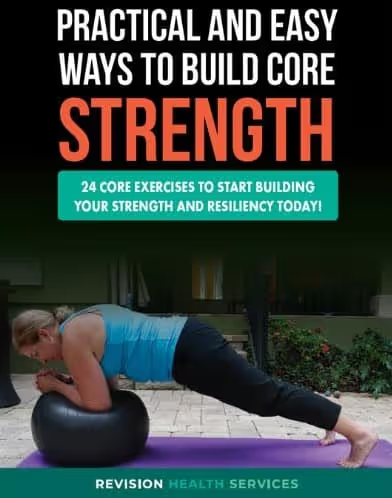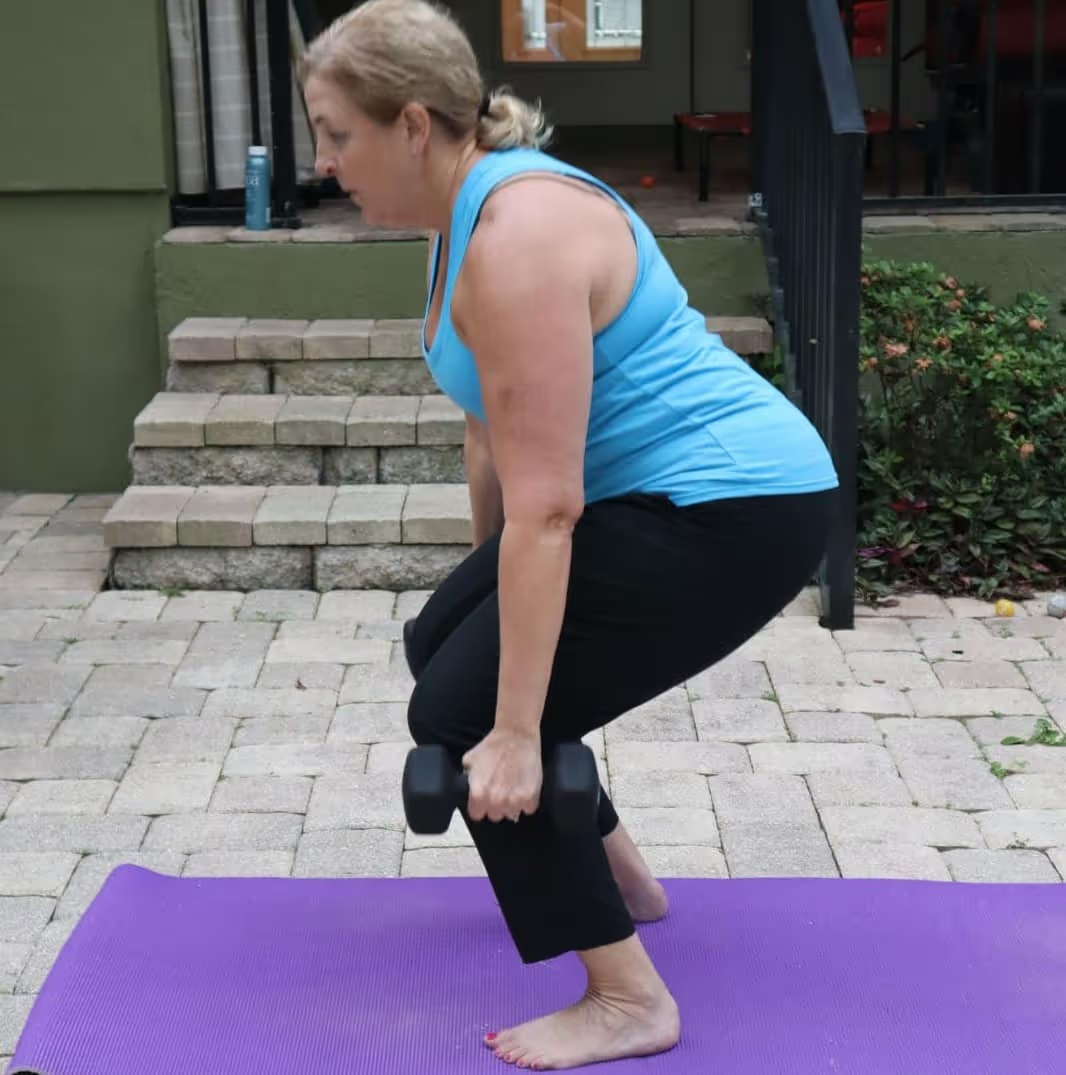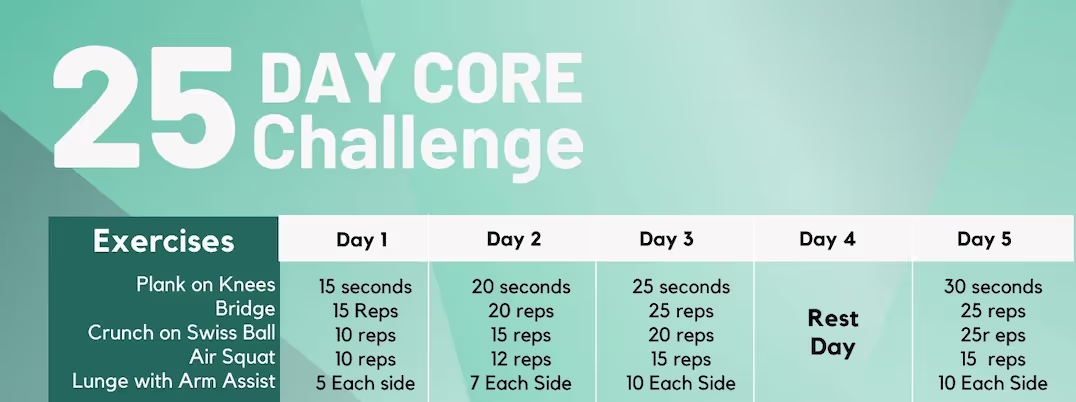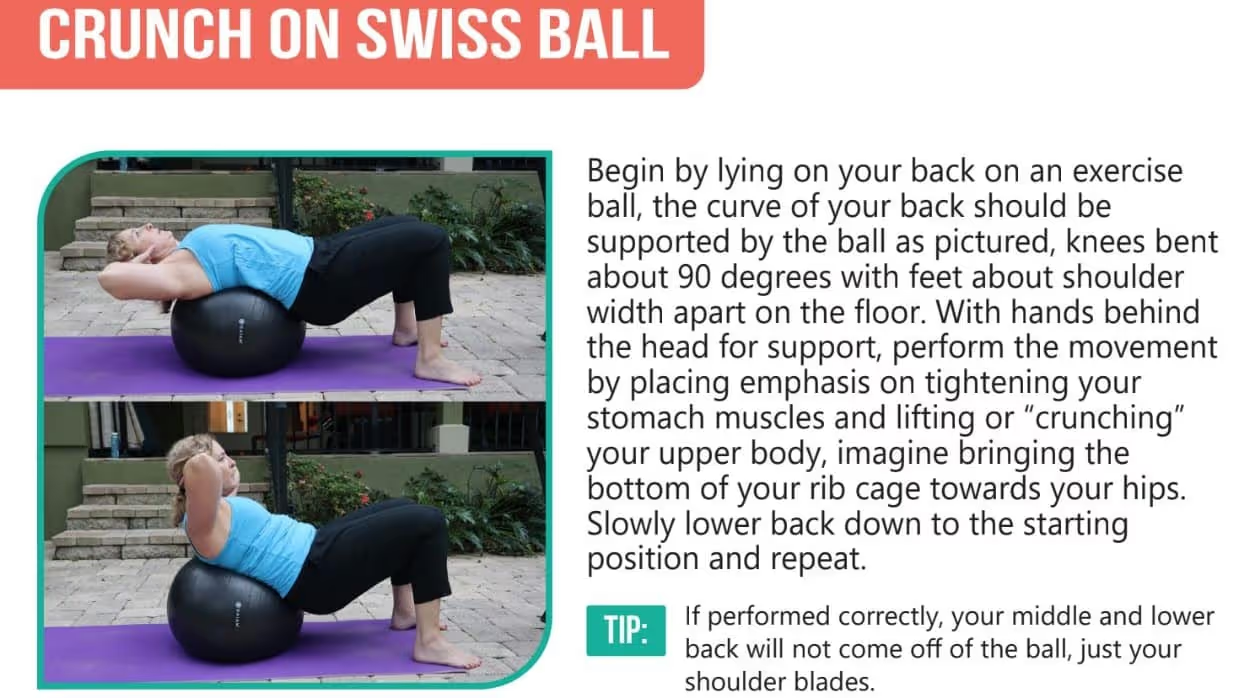
3 Tips to Help You Strengthen Your Core and Lower Back at the Same Time
Tips to help quickly strengthen your core and lower back at the same time include:
- Choose exercises that have high EMG activity
- Learn your body
- Focus on multi-joint exercises
High EMG Activity Exercises
Core exercises with high EMG activity include the bird dog and using weights with exercises such as lunges. High EMG or electromyography exercises are exercises have been shown to have some of the best muscle fiber activation and motor recruitment. So, more of the muscle is worked with just one exercise. I use these often when treating patients lower back weakness related to arthritis or a pinched nerve.

Learning and Knowing your Body
Learning your body is a must. This is the key when I treat my patients as well. Some people need to start with and others are able to start more advanced. Some people can tolerate 10 exercises and others only 3. The point here is that there is a lot of variety and my best recommendation would be to start with something easier then progress, especially if you have a not so great lower back.
Multi-joint Exercises
Multi-joint exercises allow us to be efficient and effective as the same time. These include lunges, squats, and more. Basically they use many muscles at once.

How Long Does it Take to Strengthen Back and Core?
Typically, it takes 4-8 weeks to notice considerable improvements in back and core strength. When you don't have any way to measure strength I usually tall my patients that if you are noticing improvement in pain intensity or reduction in frequency then you must be improving.
When you first start exercising you will notice a rapid increase in strength because your body is becoming more efficient at recruiting your muscles. For long term strength improvement you need to stay consistent and persistent with a good strengthening program.

Does Strengthening the Core Help Lower Back Pain?
Absolutely core strengthening helps lower back pain. In fact, we see that core strengthening is a well studied intervention to assist in treating new and chronic lower back pain. Lower back pain is by far the most common condition I treat and when I work with clients who are battling lower back pain, we always include core strengthening.

Core strengthening exercises can also help alleviate pain from herniated discs.
When we think core and lower back pain, we need to remember that the core is essentially neck to pelvis and it includes the lower back muscles, abdominals, and even glutes! A well structured core strengthening program includes all of these.
What we need to remember is that the types of lower back pain impact the type of core strengthening. Here are some of the more common conditions and examples I treat.
- Sciatica
- Arthritis or Degeneration
- Hypermobility
- Disc bulges
Sciatica
Sciatica which includes pain and weakness into the leg often does well with nerve glides first then we work into strengthening the lower back muscles.
Arthritis or Degeneration
Those 50 and older often have arthritic pain but we do see "arthritis" start in our 20's and 30's! This type of pain is typically achy and dull that feels better once we start moving.
This type of back pain, responds really well to stabilization core exercises and progressive loading.
Hypermobility
I have a patient right now, who was born with some extra range of motion in their joints and they respond very well to stabilization exercises such as a bird dog or
What is the Best Way to Strengthen Your Core?
The best ways to strengthen your core includes:
- Dedicate 10-20 min a day exercising
- Build the habit of taking care of your health
- Follow a schedule such as a calendar
- Learn how and what to do
Improving core strength required dedication and persistence. For my most successful patients we focus on consistency and dosage.
You have to be doing enough for long enough to notice change.
If you don't have a lot of experience then either team up with a trainer or physical therapists to help you learn your body and build a routine so you can truly build core strength, or download this PDF to help you learn on your own!
In conclusion, strengthening your core and lower back is essential for overall health and can significantly reduce pain. By choosing exercises with high EMG activity, such as bird dogs and weighted lunges, you ensure effective muscle activation. Understanding your body and progressing through exercises at your own pace is crucial for success.
For a comprehensive guide on core strengthening tailored to your needs, download our free PDF. This resource provides detailed instructions to help you build a strong, pain-free back.
References
Tips to help quickly strengthen your core and lower back at the same time include:
- Choose exercises that have high EMG activity
- Learn your body
- Focus on multi-joint exercises
High EMG Activity Exercises
Core exercises with high EMG activity include the bird dog and using weights with exercises such as lunges. High EMG or electromyography exercises are exercises have been shown to have some of the best muscle fiber activation and motor recruitment. So, more of the muscle is worked with just one exercise. I use these often when treating patients lower back weakness related to arthritis or a pinched nerve.

Learning and Knowing your Body
Learning your body is a must. This is the key when I treat my patients as well. Some people need to start with and others are able to start more advanced. Some people can tolerate 10 exercises and others only 3. The point here is that there is a lot of variety and my best recommendation would be to start with something easier then progress, especially if you have a not so great lower back.
Multi-joint Exercises
Multi-joint exercises allow us to be efficient and effective as the same time. These include lunges, squats, and more. Basically they use many muscles at once.

How Long Does it Take to Strengthen Back and Core?
Typically, it takes 4-8 weeks to notice considerable improvements in back and core strength. When you don't have any way to measure strength I usually tall my patients that if you are noticing improvement in pain intensity or reduction in frequency then you must be improving.
When you first start exercising you will notice a rapid increase in strength because your body is becoming more efficient at recruiting your muscles. For long term strength improvement you need to stay consistent and persistent with a good strengthening program.

Does Strengthening the Core Help Lower Back Pain?
Absolutely core strengthening helps lower back pain. In fact, we see that core strengthening is a well studied intervention to assist in treating new and chronic lower back pain. Lower back pain is by far the most common condition I treat and when I work with clients who are battling lower back pain, we always include core strengthening.

Core strengthening exercises can also help alleviate pain from herniated discs.
When we think core and lower back pain, we need to remember that the core is essentially neck to pelvis and it includes the lower back muscles, abdominals, and even glutes! A well structured core strengthening program includes all of these.
What we need to remember is that the types of lower back pain impact the type of core strengthening. Here are some of the more common conditions and examples I treat.
- Sciatica
- Arthritis or Degeneration
- Hypermobility
- Disc bulges
Sciatica
Sciatica which includes pain and weakness into the leg often does well with nerve glides first then we work into strengthening the lower back muscles.
Arthritis or Degeneration
Those 50 and older often have arthritic pain but we do see "arthritis" start in our 20's and 30's! This type of pain is typically achy and dull that feels better once we start moving.
This type of back pain, responds really well to stabilization core exercises and progressive loading.
Hypermobility
I have a patient right now, who was born with some extra range of motion in their joints and they respond very well to stabilization exercises such as a bird dog or
What is the Best Way to Strengthen Your Core?
The best ways to strengthen your core includes:
- Dedicate 10-20 min a day exercising
- Build the habit of taking care of your health
- Follow a schedule such as a calendar
- Learn how and what to do
Improving core strength required dedication and persistence. For my most successful patients we focus on consistency and dosage.
You have to be doing enough for long enough to notice change.
If you don't have a lot of experience then either team up with a trainer or physical therapists to help you learn your body and build a routine so you can truly build core strength, or download this PDF to help you learn on your own!
In conclusion, strengthening your core and lower back is essential for overall health and can significantly reduce pain. By choosing exercises with high EMG activity, such as bird dogs and weighted lunges, you ensure effective muscle activation. Understanding your body and progressing through exercises at your own pace is crucial for success.
For a comprehensive guide on core strengthening tailored to your needs, download our free PDF. This resource provides detailed instructions to help you build a strong, pain-free back.
References
1. Hlaing SS, Puntumetakul R, Khine EE, Boucaut R. Effects of core stabilization exercise and strengthening exercise on proprioception, balance, muscle thickness and pain related outcomes in patients with subacute nonspecific low back pain: a randomized controlled trial. BMC Musculoskelet Disord. 2021 Nov 30;22(1):998. doi: 10.1186/s12891-021-04858-6. PMID: 34847915; PMCID: PMC8630919.
2. Oliva-Lozano JM, Muyor JM. Core Muscle Activity During Physical Fitness Exercises: A Systematic Review. Int J Environ Res Public Health. 2020 Jun 16;17(12):4306. doi: 10.3390/ijerph17124306. PMID: 32560185; PMCID: PMC7345922.




%20Blog%20thumbnails%204.avif)
